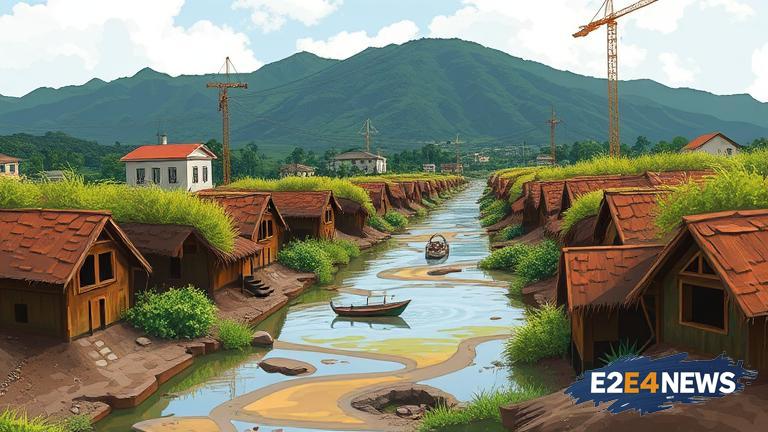The city of Trinidad has recently elected to explore new water supply sources, a move that has sparked intense debate among community members. The decision was made in an effort to address the city’s growing water needs, but many residents are concerned about the potential consequences of induced growth. With the city’s population expected to continue growing, the need for a reliable water supply has become increasingly pressing. However, community members are worried that the exploration of new water sources will lead to an influx of new residents, putting a strain on the city’s infrastructure and natural resources. Some residents have expressed concerns about the potential environmental impacts of the new water supply, including the effects on local wildlife and ecosystems. Others have raised questions about the cost of the project and how it will be funded. Despite these concerns, city officials are moving forward with the exploration of new water sources, citing the need for a reliable and sustainable water supply. The city has announced plans to conduct a thorough environmental impact assessment and to engage with the community throughout the process. Community members are being encouraged to participate in public meetings and to provide feedback on the project. The city has also established a website and social media accounts to provide updates and information on the project. As the city moves forward with the exploration of new water sources, community members will be watching closely to ensure that their concerns are heard and addressed. The city’s decision to explore new water sources is not without precedent, as many other cities have faced similar challenges in recent years. In fact, the exploration of new water sources has become a major issue in many parts of the country, with cities and towns struggling to meet the needs of their growing populations. The use of new technologies and innovative approaches has become increasingly important in the search for sustainable water solutions. Some cities have turned to desalination, while others have explored the use of recycled water. In Trinidad, city officials are considering a range of options, including the development of new wells and the construction of a new water treatment plant. The city’s water utility has announced plans to increase water rates in order to fund the project, a move that has been met with resistance from some community members. Despite the challenges and controversies surrounding the project, city officials remain committed to finding a solution to the city’s water needs. The exploration of new water sources is just one part of a broader effort to ensure the long-term sustainability of the city’s water supply. The city is also working to promote water conservation and efficiency, through the use of low-flow appliances and other measures. Community members are being encouraged to take an active role in promoting water conservation, through the use of rain barrels and other water-saving devices. As the city moves forward with the exploration of new water sources, it is clear that the project will have far-reaching implications for the community. The city’s decision to explore new water sources is a complex issue, with many different factors at play. While some community members have expressed concerns about the potential impacts of the project, others see it as a necessary step towards ensuring the long-term sustainability of the city’s water supply. Ultimately, the success of the project will depend on the city’s ability to balance the needs of its growing population with the need to protect the environment and preserve the city’s natural resources. The city’s water utility has announced plans to provide regular updates on the project, and community members are encouraged to stay informed and engaged throughout the process. By working together, the city and its residents can ensure that the exploration of new water sources is a success, and that the city’s water needs are met in a sustainable and responsible way.
